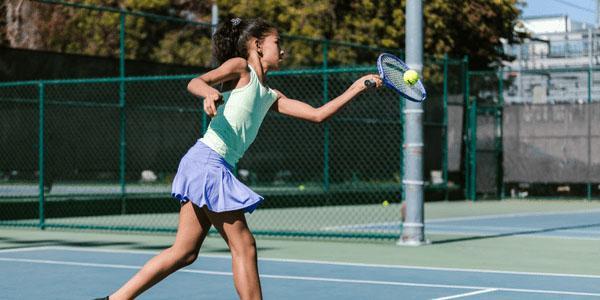“How to Win Wimbledon in Pajamas”
Mary Nhin’s son, Kobe, began competing in tennis a couple of years ago and was winning most of his games… until he hit a cold streak.
“He began going into super tiebreakers, a very short determining point system, and he would get very nervous, and he would end up losing,” says Nhin, the co-author, along with Kobe, of “How to Win the Wimbledon in Pajamas.“
He knew his mental skills needed work, so he started researching mental toughness and the mental game in general.
His journey into the world of mental toughness turned Kobe into a much stronger athlete and inspired Kobe and Mary to write a series of books on the subject.
Nhin stresses awareness as a key to getting her son mentally strong for his matches.
“Kobe figured out he would have this vicious cycle when the game was coming up, or the score was close. He would begin to have thoughts about what would happen in the future. Being aware of those thoughts or feelings was the first step for him to being able to stop that cycle.”
Nhin and Kobe give five tips in “How to Win Wimbledon in Pajamas.” Stay calm using mantras, stay confident through visualization; be motivated through outcome goals and process goals; stay focused, and remain carefree.
He focused on the moment and not outcomes–as long as he was trying his best and strategizing throughout the game.
“For Kobe, one of his most powerful mantras is ‘work hard, fast feet.’ It keeps him focused and keeps any negative thoughts out of his head.
A lot of times, athletes will think ‘This is too hard, I can’t do this,’ and having a positive mantra actively stops them from thinking so negatively.” she says.
Goals and motivation can’t come from parents or coaches; they have to be intrinsic. Kobe has long- term goals like playing for a Division 1 college. She also says keeping a “growth mindset” is an important part of staying mentally strong.
“If you are thinking with a growth mindset, every setback or loss is leading you one step closer to your outcome goal. If you look at it with a growth mindset, every failure teaches you something which means you’re one step closer to your goal.”
You can listen to the full interview with Mary Nhin below:
Related Articles on Kids’ Mental Game:
- How to Help Athletes Break Out of Losing Streaks
- Helping Sports Kids Build Stable Confidence
- Help Athletes Get Through Slumps
*Subscribe to The Sports Psychology Podcast on iTunes
*Subscribe to The Sports Psychology Podcast on Spotify
Improve Your Mental Game From Anywhere In The World

We’re certain that, as a parent, you want to help your child develop confidence and discipline in sports and life. And as a sports parent, you’d love for your children to reach their potential in sports. But encouraging your child to strive for greatness without pressuring them can be a challenge.
You can get expert mental coaching with us from anywhere. Meet with us via Zoom, Skype, FaceTime or phone call. With today’s video technology, we are able to connect with athletes and coaches all over the globe.
Call Us Today to Schedule Your Free 15-Minute Session.
Find Out How Your Athlete Can Benefit From One-on-One Mental Coaching!

